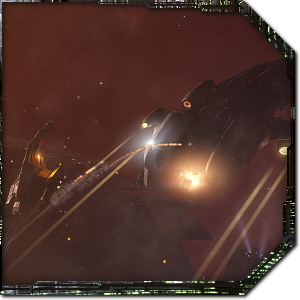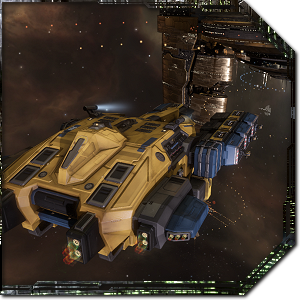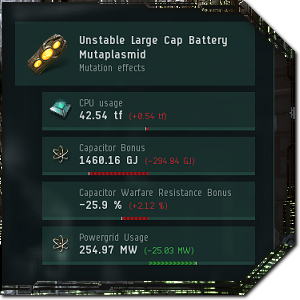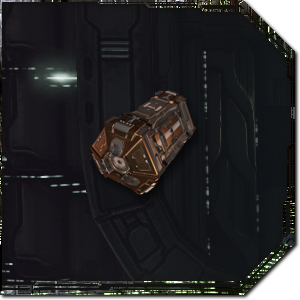
The gambling debate has kicked off again in EVE Online, this time in response to the annual Guardian’s Gala event that’s currently running throughout the game. Last year’s event just involved killing NPCs in special event sites for rare items and skins, but the 2019 version has a new gambling component. Players are rewarded with Gala tickets for killing bosses in event sites and completing associated challenges, which can be handed in along with 13 million ISK and some minerals mined from the event site in exchange for… a lootbox.
This isn’t the first time lootboxes have been used in EVE, and they’ve always been earned in-game rather than sold for cash, but this event has a distinctly gambling feel to it that doesn’t sit right with me. EVE Online has a long and complicated history of gambling that came to a head in 2016 when CCP Games finally banned third-party EVE gambling websites, but similar in-game mechanics can prove just as harmful to players with gambling addictions.
In this edition of EVE Evolved, I look at the history of gambling in EVE, examine its use in the Guardian’s Gala, and speak to one player about his gambling problem.
 EVE Online‘s history of gambling
EVE Online‘s history of gambling
Gambling has been a part of EVE since the very beginning, with the first major lottery (the BIG Lottery) spawning at the end of beta and continuing to this day. Over the years we’ve seen hundreds of other gambling-type schemes, from lotteries and sweepstakes to card games and bets on events. EVE Online Hold’em Poker was a big part of EVE for some players, and betting on the Alliance Tournament was an annual pastime enjoyed by many players.
It wasn’t until the arrival of true gamified gambling websites such as SOMER.blink that things started to go seriously wonky. This micro-lottery website was actually a lot of fun, and shipping prizes became a lucrative job for haulers in EVE, but it eventually became obvious that some people using it had serious gambling problems. The top five players gambled enough to reportedly win over 87 trillion ISK between them, and the site used sales tactics such as giving bonus credit if you bought PLEX for cash through their referral system.
I always wondered where all of the ISK generated by the site was going as I knew it was generating enough to literally fund empires and distort the game’s politics. Though the site’s creator was eventually banned and the site was shut down, distorting the game’s politics is exactly what ended up happening. Alternative gambling site IWantISK used its vast wealth to bankroll the infamous World War Bee (also known as the Casino War), and in the end all player-run gambling services were banned by CCP shortly after a major CS:GO betting scandal sent waves through the gaming world.
 Random loot isn’t gambling
Random loot isn’t gambling
Though practically all MMOs have some form of random loot system, the key thing that I think differentiates it from gambling is that you can’t make a significant loss by looting something. The only investment you put in when running PvE content is your time and incidental costs such as ammo, but with gambling you spend an amount of money (in-game or real life) in exchange for a random roll that could result in a sizeable net gain or loss.
Not all lootboxes in games fit that definition easily, but a peculiar quirk of EVE‘s economy means all of them do in EVE. One of EVE‘s main defining features is its player-run economy in which everything is tradeable, so any container that gives a random reward becomes a gambling mechanic. The market is efficient enough that every item quickly tends toward equilibrium pricing based on its true value, and in the case of random containers that’s the mean value of its possible contents. And let’s be honest, if there’s one game in which players will put together spreadsheets and collect data on the statistical mean outcome of random events, it’s definitely EVE Online.
What lootcrates does EVE have?
CCP has added a number of items over the years that produce random loot since it introduced the crate system. Exoplanet reward crates full of tradeable skins can be obtained by doing Project Discovery tasks, for example, and a lot of events have given out free crates with random items and skins. There’s also the Genolution CA-X crate that randomly gives you one of four rare implants, and strong boxes from killing NPC mining ops drop random skins and occasionally rare faction items.
While none of these crates is sold directly for cash and they’re primarily just used as item delivery methods, the fact that they can be sold on to other players has transformed them into potential gambling surrogates. It’s also important to remember that if a crate with random contents ever drops significantly in price below its mean output value, it becomes predictably profitable for players to buy them up and open them in large numbers. This market pressure ensures that all random lootcrates in EVE will naturally tend roughly toward equilibrium pricing, so anyone buying them up as a gambling tool is always playing on thin margins.
 The Guardian’s Gala is a disgrace
The Guardian’s Gala is a disgrace
The reason that the gambling debate has resurfaced in EVE Online this week is because of the current Guardian’s Gala event, which I can only describe as an absolute disaster. Putting aside the fact that the event challenges frequently get stuck and don’t refresh for people, it includes an actual gambling mechanic that seems designed to make you lose ISK.
Last year’s event involved fighting of waves of NPCs and then killing a boss who dropped some nice loot. The boss enemies in this year’s event now drop low-quality damaged lootboxes and tickets that can be redeemed along with 13 million ISK and about 10 million ISK’s worth of event minerals for a “gift” box containing a random reward. Player slphy vansyl opened 100 of these crates to find out what the drop value would be, and for an investment of 1.3 billion ISK and around another 1.1 billion ISK’s worth of minerals and tickets, he got only about 1.6 billion back.
I myself opened about ten crates at a cost of around 200 million ISK and got just a few million ISK’s worth of items in return, and one player told me that he opened one of the special VIP crates and got a single unit of literal garbage. The fact that you have to pay that 13 million ISK for a roll of the dice makes this a hard gambling mechanic, and the wide range in rewards is punishing to new players who can’t afford to lose that much ISK. Worse still is the fact that CCP built the 13 million ISK price tag into the game mechanic and then purposely decided to fill the loot tables with mostly rubbish. It’s almost as if CCP wanted people to lose ISK on it.
 Gambling addiction is a problem
Gambling addiction is a problem
Whether intentional or not, CCP has added a number of gambling surrogates to EVE Online over the years. The most obvious example is the mutaplasmid mechanic in the Into the Abyss expansion that lets you roll randomised stat variations on items.
The value of output modules from mutaplasmid rolling is kind of fuzzy because they’re the first non-generic items in EVE and are difficult to value and sell as a result. You won’t get immediate feedback on the financial gain of your win, but you do get visual feedback on how well the module has rolled.
In a thread on reddit yesterday, player Stukya called CCP out for the blatant gambling mechanics in the Guardian’s Gala event, saying that gambling addiction is a disease and that players with a problem will do it compulsively. Some would argue that a virtual outlet for gambling compulsions is a positive thing, but we know from previous gambling websites connected to EVE Online that players will buy PLEX for cash to convert into in-game funds in order to fuel their addictions.
 PLEX amplifies the gambling issue
PLEX amplifies the gambling issue
I spoke to one player named Kradick Kahn who was gambling with the Guardian’s Gala boxes and admitted that he may have a gambling problem. “Its only a problem if you cant afford it,” he joked with me in the Events chat channel last night before admitting that that he thinks the event is “designed to get more players to buy ISK.” The timing of this week’s 10% PLEX price discount and marketing about the record-high value of PLEX suddenly seems a little suspect.
Kradick Kahn claims that he gambled extensively on the EVE gambling website IWantISK around three years ago before third party gambling sites were banned. “I think I spent about 10k or so,” he said, confirming that he meant US dollars and explaining that at one point his credit card was even blocked. He says that he’s rolled a lot of mutaplasmids since they were introduced too, and confirmed that he burned through PLEX to fund that habit. While Kradick Kahn may have had enough money to burn $10,000 on a gambling service without worrying, not all gamblers are in such a comfortable position. Kradick himself even admits it was getting out of hand, and he now sticks to a smaller budget.
Gambling has been seeping into the online games industry for a number of years, and it’s disheartening to see more companies each year posting record profits thanks to microtransaction whales without recognising the harm their sales and marketing strategies can cause. Those with gambling addictions and similar compulsions that they can’t control will pull that lever over and over again, chase their losses, and sink cash in to stay afloat if the option is available.
The industry is on a collision course with gambling regulations that no studio wants to find itself on the receiving end of. When the hammer finally falls on gambling in games, it may not stop at blatant microtransaction-based gacha games or those that sell lootboxes for cash. Games that provide indirect ways for players to spend cash on gambling mechanics and fail to identify and support those with addictions could eventually end up on the chopping block too, and EVE Online would undoubtedly be one of the first heads to roll.
 EVE Online expert Brendan ‘Nyphur’ Drain has been playing EVE for over a decade and writing the regular EVE Evolved column since 2008. The column covers everything from in-depth EVE guides and news breakdowns to game design discussions and opinion pieces. If there’s a topic you’d love to see covered, drop him a comment or send mail to brendan@massivelyop.com!
EVE Online expert Brendan ‘Nyphur’ Drain has been playing EVE for over a decade and writing the regular EVE Evolved column since 2008. The column covers everything from in-depth EVE guides and news breakdowns to game design discussions and opinion pieces. If there’s a topic you’d love to see covered, drop him a comment or send mail to brendan@massivelyop.com!















